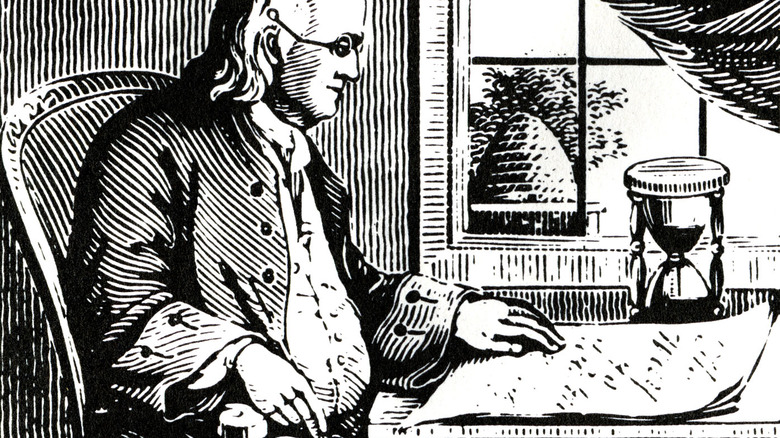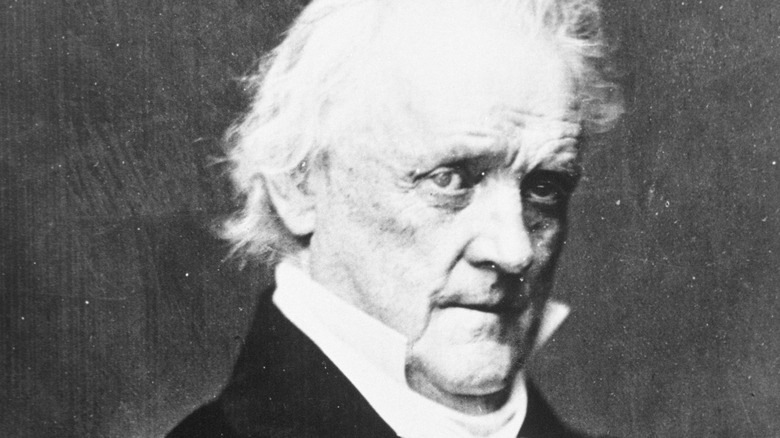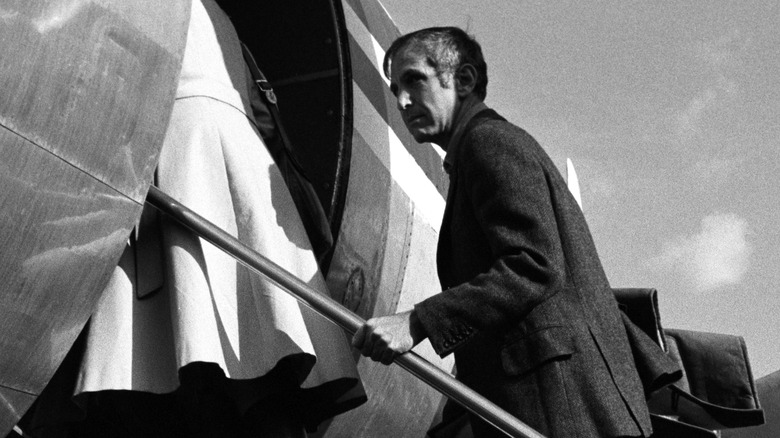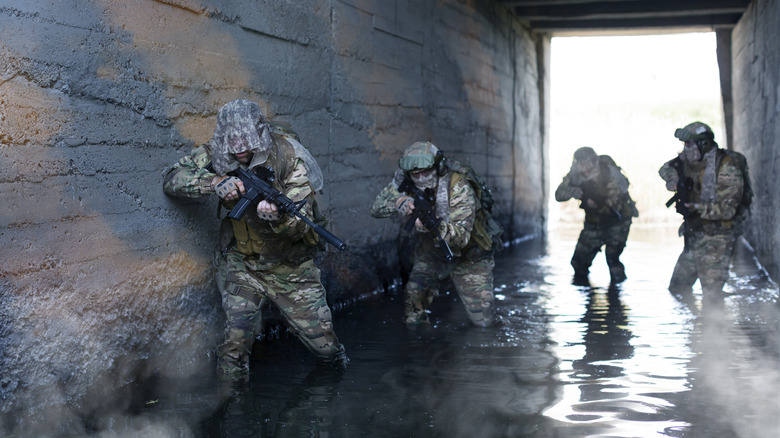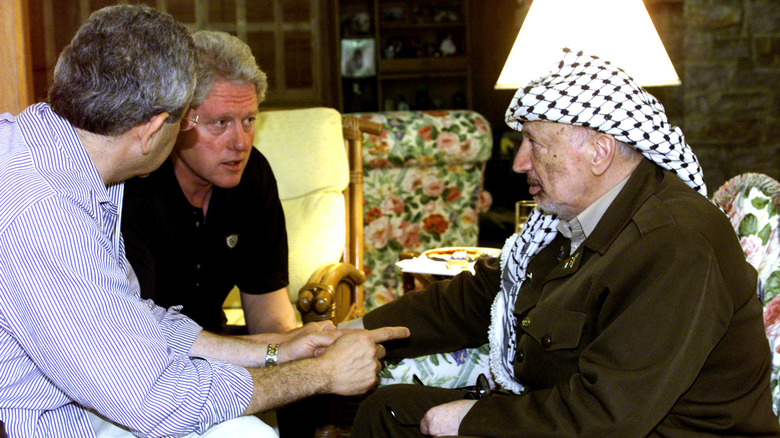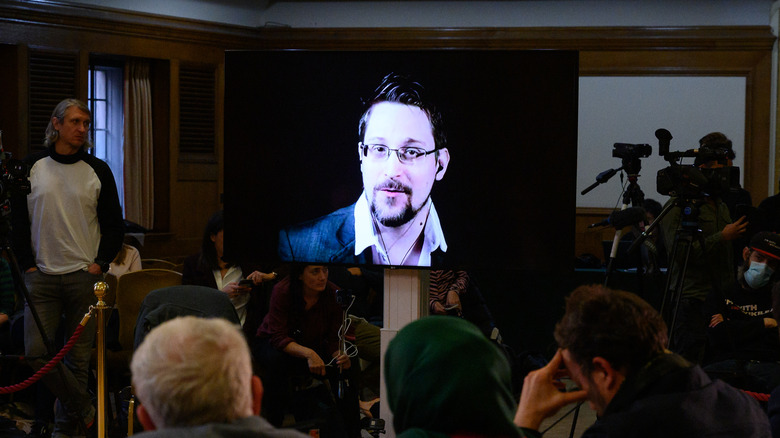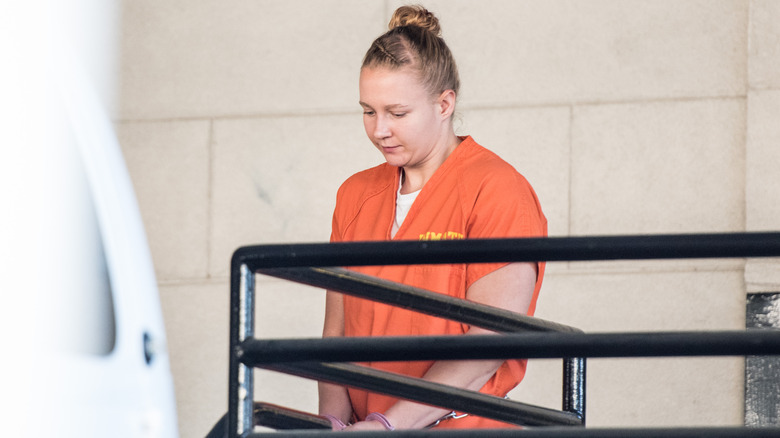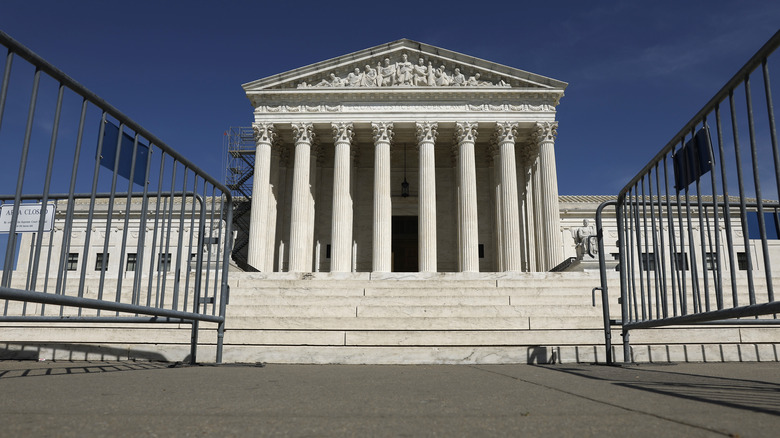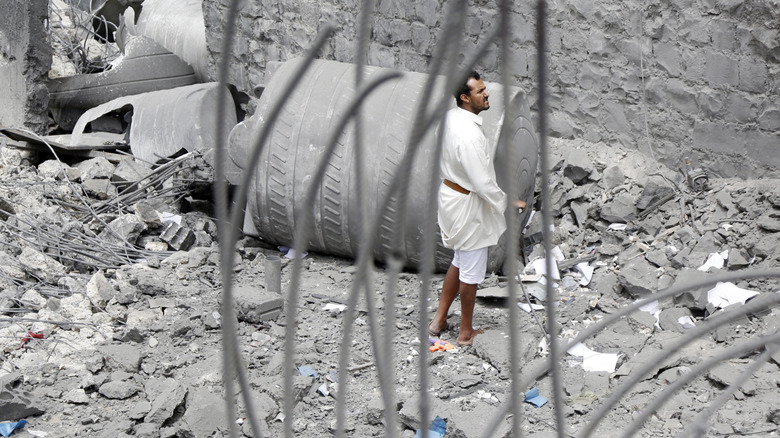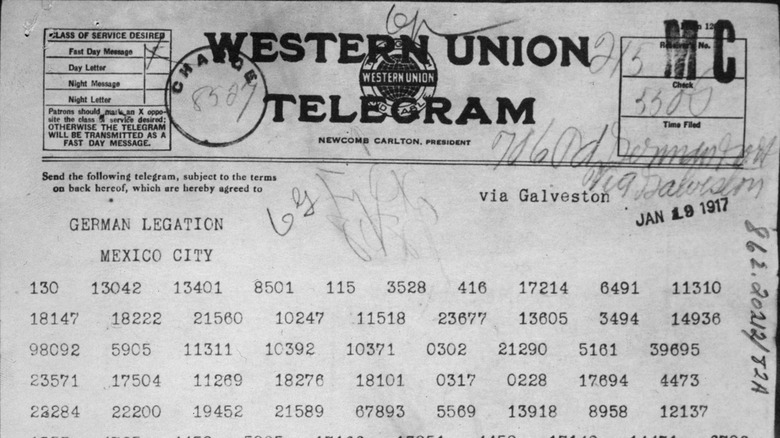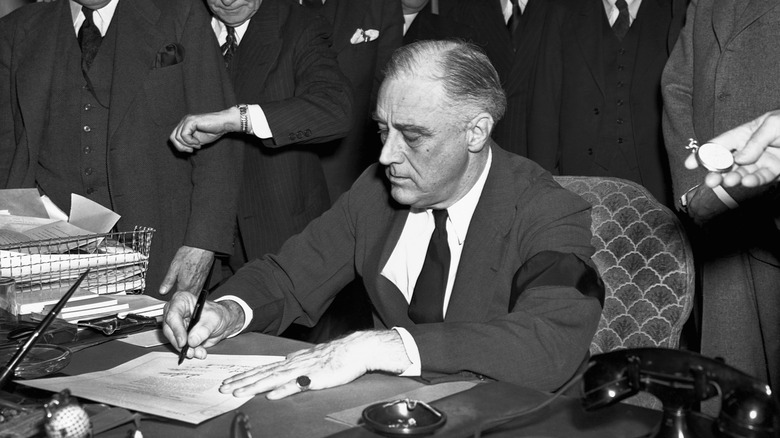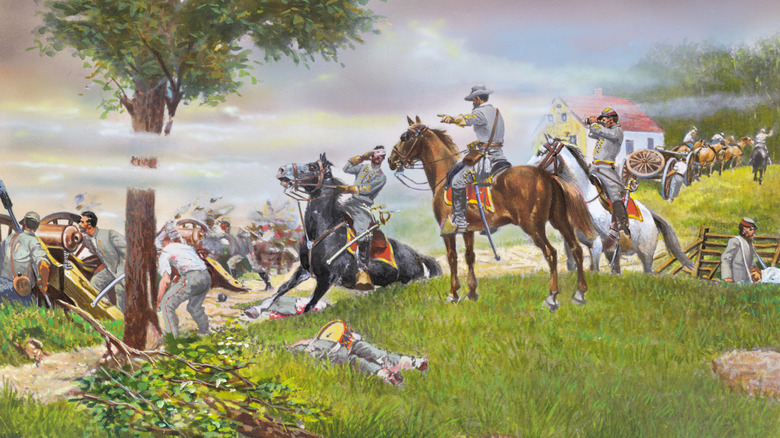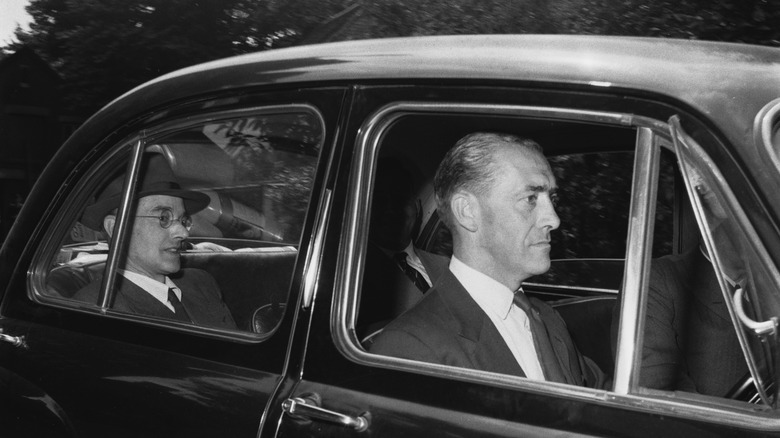Secret Government Documents That Were Leaked
Governments and public officials always have their secrets, whether they meet the formal, modern definition of classified information or not. Whatever the reasons for keeping such secrets, any puncturing of the wall of silence around them is unlikely to be welcomed, and concern over the breach can be as intense, if not more so, than concern over the content of the leak. The 2023 leak of U.S. security documents on social media inspired fears at home of how such sensitive material ended up in the hands of a young, low-ranking airman, and anger abroad at what the leaks revealed about American spying on allied powers. Investigations and prosecutions of leakers have ended in prison sentences.
At times, however, leaked secret documents have been seen in a more heroic light. An entire generation came of age with the most prominent example of such a leak revealing hidden truths about the Vietnam War and hastening its end. Much depends on the nature of the information revealed, the political climate of the day, and the motives of those behind the leaks, which have varied wildly throughout history. Here are some of the most notable secret government documents that were leaked.
The Hutchinson Letters
Besides being counted among the Founding Fathers, Benjamin Franklin is also remembered as the father of the U.S. postal service. He was considered an able candidate when the Continental Congress established the position of postmaster general, having served the same role for all 13 colonies prior to the revolution's beginning. But Franklin's handling of private correspondence led to his rather ignominious resignation as the colonial postmaster.
In December 1772, letters from the governor and lieutenant governor of Massachusetts to the British government — advocating for harsher measures to keep the increasingly agitated colonies in line — fell into Franklin's hands while in England. While not yet a full-throated supporter of independence from Britain, Franklin did find the recommendations of Governor Thomas Hutchinson alarming enough to pass the letters on to friends active in colonial politics. He did so on the understanding that they would remain private, a stipulation Samuel Adams promptly ignored. The leaked letters, wherein Hutchinson called for more troops and fewer rights, sparked outrage in Massachusetts and a furious investigation in England.
Disputes over the leaker's identity culminated in a clumsy duel in 1773. At that point, Franklin admitted to giving the letters to his friends back home, but argued that such deliberations about the fate of the colonies should have been in the public record. He was fired by the privy council and returned to America with a newfound zeal for independence. Whoever passed Hutchinson's letters on to Franklin remains unknown.
The Treaty of Guadalupe Hidalgo
Government secrets have been leaked from all levels of state, from field agents to senior cabinet officials. In at least one instance of American history, a plausible suspect for a leak was a future president. In 1848, the United States and Mexico were negotiating the end of the Mexican-American War. But before the agreement, known as the Treaty of Guadalupe Hidalgo, could be ratified by the Senate, New York Herald reporter John Nugent published details of its confidential terms, including U.S. territorial gains. These greatly expanded American control over southwest North America, including territory that now includes California, Utah, New Mexico, and Nevada.
Nugent, who also reported on leaks by the Senate to the press, was brought in on charges of contempt of the Senate, which demanded to know the source of the draft treaty. He refused to betray his source, saying only that he didn't get the draft from anyone connected to the Senate itself. While Nugent remained in custody, the Herald began naming their senatorial sources for other stories. Appeals by Nugent to the D.C. circuit court failed, but he was able to keep writing while held by the Senate, and was later released on account of his health.
While unconfirmed, Nugent's suspected source was James Buchanan, then secretary of state. Nugent was known to have supported Buchanan over President James K. Polk — and when Buchanan became president, he gave Nugent a plum diplomatic post.
The Pentagon Papers
It was formally called the Report of the Office of the Secretary of Defense Vietnam Task Force, but it became infamously known as the Pentagon Papers. This was a classified study commissioned by Secretary of Defense Robert McNamara in 1967, to assess the history of the United States' activities in Vietnam over the previous two decades. The report was ordered against a backdrop of growing antagonism by the American public to the Vietnam War, and among those so disenchanted was one of the workers responsible for preparing the study.
Daniel Ellsberg was an enthusiastic supporter of American involvement in the Vietnam conflict in the 1950s, but he had completely reversed himself by the time the report was completed. The full report, available through the National Archives, detailed how successive presidential administrations intensified American political and military presence in the region, often without revealing the full extent of activities to the public. It also found that bombing campaigns against North Vietnam were done even after it was determined that the raids wouldn't affect support for the Viet Cong.
Ellsberg leaked portions of the report to a New York Times reporter, and the Times was joined by The Washington Post and the Boston Globe in revealing the leaks' contents to a shocked international audience. The Department of Justice sought to suppress the leaks, citing national security, but in a landmark decision by the Supreme Court, the papers' publishing was deemed protected by the First Amendment.
The Downing Street Memos
Notable episodes in the history of British intelligence rarely resemble their famous literary and cinematic spies. The Downing Street memo, leaked to the press in 2005, was just that: a memorandum summarizing a briefing. But that briefing was by the head of British intelligence, Richard Dearlove, to Prime Minister Tony Blair in early 2002, and the subject was the George W. Bush administration's efforts to mount a military assault on Saddam Hussein's Iraqi regime.
The briefing was given after Dearlove had consulted with his counterpart at the CIA. According to the memo itself (via The National Security Archive), British intelligence had determined that Bush was dedicated to breaking Hussein's hold on power, and his administration was prepared to manipulate evidence to support that goal. It was also observed that the administration had scarcely considered what Iraq would look like after any military action. The briefing outlined various attack scenarios and discussed possible divergence with American policy, but it noted that the Bush administration saw a war as inevitable.
The memo was leaked to reporter Michael Smith, and it inspired fierce criticism of Bush and Blair on both sides of the Atlantic. In Britain, it became a campaign issue, as the Conservative party claimed it showed Blair's subservient relationship to the Bush administration. While Blair came out of the election with his hold on office unbroken, the Labour Party's majority was greatly reduced, and the conduct of the Iraq War was largely held to blame.
The Iraq War logs
Even before the Iraq War began in 2003, critics of the intervention had doubts about the information given to the public about conditions in Iraq. The Downing Street memo, leaked in 2005, demonstrated to some of these critics how intelligence was manipulated in the lead-up to the war, and revelations of torture at the Abu Ghraib prison site the year before revealed a hidden, ugly dimension to coalition tactics. But the 2010 reporting on the so-called Iraq War logs demonstrated the extent to which human rights abuses and unreliable government claims ran.
Leaked by junior intelligence analyst Chelsea Manning to Wikileaks, which in turn distributed the logs among various mainstream media outlets, the Iraq War logs were a collection of almost 400,000 reports by the U.S. military spanning several years. They showed a systematic abuse of prisoners by Iraqi officials that was known but unchallenged by American authorities. The reports also showed that, contrary to U.S. and U.K. claims, thousands of civilian casualties were recorded and that coalition forces had sometimes met offers of surrender with lethal force (per The Guardian).
The U.S., U.K., and Iraqi governments all attacked the reporting on the leaks as a security risk, while Wikileaks founder Julian Assange defended his site's actions as enlightening the public to the truth. Manning, who says she leaked the information because she felt the military was misleading the country, was sentenced to 35 years in prison,which was commuted early in 2017.
The Palestine Papers
In January 2011, Al Jazeera announced that it was in possession of around 1,700 classified documents of various natures, produced between 1999 and 2010, that related to the Israeli-Palestinian conflict. The cache was shared with The Guardian, and the two outlets dubbed them the Palestine Papers, with the majority of documents coming from the Palestinian negotiation support unit (NSU) and various security units. It was described as the largest intelligence leak since the conflict between Israel and Palestine began.
The documents showed the great lengths Palestinian leaders were prepared to go to reach a compromise with Israel, after the failure of the Camp David talks in 2000. Concessions offered over the years included acknowledging Israeli settlements in East Jerusalem and proposals for dividing control of holy sites. However, Al Jazeera, in its inaugural report, claimed that these concessions, offered by the Palestinian Authority, were not matched by any gesture from Israel; The Guardian characterized both sides as making substantive offers, but reported that the sticking point in talks was Israel's continued settlement of the West Bank.
The Palestinian Authority was quick to challenge Al Jazeera's motives in publishing the leaked documents. There was longstanding antagonism between the network and the Palestinian Authority, the latter of which had seen its reputation among Palestinians fall over the years. It was insinuated that Al Jazeera sought to further weaken the Palestinian Authority and support their chief rivals, Hamas, while the network characterized its reporting as being in the spirit of encouraging public debate.
Edward Snowden's NSA leaks
Intelligence and security are tightly bound in government, and in the wake of the 9/11 terrorist attack on the World Trade Center, the U.S. government felt compelled to address apparent gaps in its intelligence surveillance policies. A broad interpretation of powers granted by the Patriot Act was used to justify the NSA infiltrating major internet servers to collect information on the online activities of ordinary U.S. citizens. Surveillance was also done on the activities of the leaders of allied powers, including Germany and Brazil.
This level of intrusion into the lives of Americans and their allies came to light in 2013, when The Guardian and The Washington Post began sharing reports carved out of thousands of leaked documents from the NSA. Per The Guardian, these not only unmasked the extent of the NSA's spying, but also revealed details of the intelligence apparatus, such as the existence of the intelligence program Prism — created to harvest data from companies like Google and Apple. The Obama administration defended the NSA's activities as vital to preventing terrorist attacks, but the reporting generated fresh concerns over privacy among the American public, a majority of whom valued civil liberties over such extensive security measures.
The leaker of the NSA documents was a contractor in their employ, Edward Snowden. Shortly after revealing himself, Snowden fled to Moscow to evade a potential 30-year prison term. His revelations generated some reforms to surveillance, but critics still argue they don't go far enough.
Reality Winner leaked to The Intercept
Possible interference by Russia was an ongoing concern after the 2016 presidential election, but the Russian authorities denied any such activity. Per The Intercept, a January 2017 report by the outgoing Obama administration that was later made public concluded that Russia had indeed run a propaganda campaign, but it drew no conclusions on the degree of any effect, and it suggested that Russia had not made a significant breach in the American voting or vote-tallying systems.
Several months later, however, The Intercept received a classified NSA report that suggested a more sinister picture: Russian hacking efforts that tapped into at least one voting software firm, and efforts to control the computers of over 100 election officials. The report was an analysis of intelligence information, not the intelligence itself, but the reported attempts at seizing control of government computers — called spear-phishing — represented a major potential security risk.
The analysis was leaked by Reality Winner, an NSA contractor and former member of the U.S. Air Force. She was prosecuted under the Espionage Act and later reached a plea deal that saw her sent to prison for five years beginning in 2018, the longest such sentence for a media source in American history. The Intercept defended its source, reporting that the leak posed no security risk because Russia already knew their operations had been uncovered. Winner was later released in 2021 for good behavior.
The Dobbs decision
Not all government secrets leaked to the press concern intelligence or national security. Among the more explosive leaks in modern U.S. history concerned a draft decision by the Supreme Court in the case of Dobbs v. Jackson Women's Health Organization. Typically, one justice from the majority of a preliminary vote on a Supreme Court case is assigned to write a draft opinion, which can be amended and sometimes overruled as the justices further deliberate. With the initial vote on Dobbs in favor of overturning Roe v. Wade and ending federal protection of abortion rights, the draft opinion was assigned to Justice Samuel Alito.
Alito wrote a scathing draft, which was leaked to the press a few months before the final decision. According to Politico, which broke the story, the justice loaded his opinion with harsh and sometimes contemptuous judgments of Roe v. Wade and how it was decided. Criticisms of Roe by liberal judges were cited, and the language of Alito's fellow conservatives was echoed throughout. Alito insinuated that some proponents of abortion rights were motivated by eugenics, and he regularly referred to doctors who provide the service as "abortionists."
No other draft decision of the Supreme Court has been leaked in its modern history. The final decision varied only somewhat, and it inspired a furious backlash. Chief Justice John Roberts immediately ordered an investigation into the breach, but as of the release of the report in January 2023, no one has been identified as the leaker.
Jack Teixeira Discord leak
In April 2023, a member of the Massachusetts Air National Guard was busted by federal authorities for leaking government secrets on a chat app. Jack Teixeira, then 21 years old, had enjoyed connecting with people on Discord, a platform especially popular with people wanting to talk about video games. Unfortunately, some of the people with whom Teixeira chatted on Discord shared his apparent interests in racism and conspiracy theories. To impress these charmers, Teixeira uploaded confidential information he had access to at work, including hundreds of top-secret documents. The documents were primarily concerned with American and NATO powers' steps to aid Ukraine in its war with Russia, including troop numbers and training schedules. But they also contained information on American security interests in regards to China and the Middle East.
Teixeira apparently figured out someone was onto him, but his attempts to cover his tracks shortly before his arrest failed. He pleaded guilty and was sentenced to 15 years in federal prison in November 2024. Teixeira wasn't the only one to get in trouble: The issuing of a security clearance to someone like him was clearly a blunder. He had been reprimanded at work for nosing around in files beyond those necessary to do his job but kept his clearance until his arrest. Fifteen of his coworkers at the Air National Guard faced internal discipline in connection to the case.
Mordechai Vanunu Israel nuclear program leaks
Israel almost certainly has nuclear weapons (and may have had them since the 1960s), but as part of its security doctrine, Israel does not confirm the existence of its nukes. One of the main reasons Israel's nuclear program is more of an open secret than a secret-secret is Mordechai Vanunu, who blew the whistle on the secret weapons facility at Dimona, in the Negev Desert in Israel's south.
Moroccan-born Vanunu emigrated to Israel as a child and later worked at Dimona as a specially trained technician from 1976 to 1985. In 1986 (after being laid off), Vanunu informed the British paper the Sunday Times of specifics of the Israeli nuclear program, including, most salaciously, that it was a much bigger program than suspected and involved collaboration with apartheid South Africa. Israeli agents subsequently snatched him from Italy, returning him to Israel for a secretive trial that led to his being sentenced to 18 years in prison, at least 10 of which he served in solitary confinement.
Current estimates consider Israel a significant nuclear power, possibly possessing 90 nukes and enough material to produce nearly 300 weapons in addition to missiles capable of delivering them. Vanunu is out of prison but still faces restrictions on his activities from a jittery government.
2025 Yemen Signal leaks
The Houthis, one of the parties in unlucky Yemen's current civil war, control (with Iranian help) Yemen's Red Sea coast. This allows them to threaten traffic headed to or from the all-important choke point at the Suez Canal and take occasional potshots at Israel and Saudi Arabia. "Threatening shipping lanes" and "intermittent shooting at allies" are traditionally things that draw responses from the United States, which occasionally bombs Houthi-held areas of Yemen to try to discourage such actions.
So far, so familiar, but in March 2025 this bloody cycle shot back into the news when it turned out that plans for a round of airstrikes on Yemen were being discussed by key U.S. national security figures ... in a group chat on messaging app Signal. More perplexingly, an editor of The Atlantic, Jeffrey Goldberg, had been added to the chat despite not having much if any direct operational control over the United States Armed Forces. The Atlantic published a transcript of the messages, complete with emojis, kvetching about European military prowess, and exchanging precise details of military planning that would conventionally only be shared over far more secure channels.
The initial airstrikes discussed in the chat killed 31 people, but the Houthis vowed to continue menacing transportation in the Red Sea. For its part, the U.S. government decried reports of the leak as a witch hunt.
Zimmermann Telegram
During World War I, the German government thought its victory depended on disrupting shipping to the Allies. The most powerful tool the Kaiser's forces had to advance this aim was the U-boat, a class of submarines that trawled Atlantic waters. In 1917, as the war dragged on, the German government decided to renew the unrestricted submarine warfare it had been forced to pause earlier in the war. "Unrestricted" means that ships from neutral countries and passenger ships were fair game.
Germany imagined this would infuriate the United States and might bring them into the war alongside the allies. The U.S. had in fact nearly declared war on Germany earlier, when passenger ships carrying Americans had been torpedoed, including the infamous sinking of the Lusitania. In order to open a second front against the U.S. in this event, the German secretary of state for foreign affairs, Arthur Zimmermann, proposed an alliance to Mexico. If the U.S. declared war on Germany, Mexico would declare war on the U.S., receiving from Germany both money and help to retake Texas, New Mexico, and Arizona, lost in the Mexican-American War.
British intelligence intercepted the message, decoded it, and transmitted the contents to U.S. president Woodrow Wilson, presumably with delight. The contents of the telegram were published in American outlets in March 1917, and to no one's surprise, the United States declared war on Germany on April 6, 1917. Mexico remained neutral through the war's end.
The King's Cabinet Opened
On June 14, 1645, a decisive battle of the British Civil Wars took place outside the village of Naseby. The army of Parliament whipped forces loyal to King Charles I so badly that they didn't even escape with all of their vehicles. This last point was especially bad for Charles, as one of these wagons contained a significant trove of his personal papers. Parliamentary forces, who knew a propaganda coup when they saw one, read the looted papers aloud in Parliament and published a selection under the exciting title "The King's Cabinet Opened."
Charmingly, he refers to his wife, Queen Henrietta Maria, as "Dear Heart," but everything else revealed in the letters was an embarrassment (including a mention, about a week before Naseby, that Charles felt the war was finally going his way). Charles gripes about matters big and small, from the prospects of peace with the rebels to the difficulty of managing his son's behavior, and reveals that the best way to get letters to him is via a "Portuguese agent." More damningly, though, he expresses a willingness to use Catholic armies (French, even!) and to lie to his adversaries if need be and later renege on his promises.
Charles' reputation was damaged by these revelations, and his fortunes never really recovered from Naseby. His home base at Oxford was surrounded in 1646, and Charles spent his last years in the captivity of one faction or another. After more diplomatic gaffes, King Charles was beheaded on the orders of Parliament in January 1649.
Accidentally emailing Mali
In 2023, a Dutch web services entrepreneur named Joost Zuurbier broke an odd story. He was in charge of the domain name for Mali, a country in West Africa, and he kept intercepting emails meant for members of the United States Armed Services. The problem is the U.S. military emails end in .mil; the Malian domain is .ml. Close! But given that Mali has been at war with itself since 2012 and some of the combatants are Islamist militants, having sensitive military information accidentally go to random addresses in Mali is worse than having it show up in, say, Luxembourg.
According to Zuurbier, he had been reporting the issue since 2013, with no apparent concern shown by American officials. Most of the information in the misdirected emails was trivial, but some contained information better kept secret: hotel assignments for U.S. personnel abroad, for example. As of Zuurbier's 2023 report, hundreds of emails with the relevant typos were flopping through Mali's virtual mail slot each day.
Rainbow Five leak
By late 1941, the United States in general was divided over the prospect of joining the Allies in World War II. Some thought it best to let the Europeans slug it out; others believed the war would involve America one way or another, and better to fight Germany in Europe than at home. This last camp included President Franklin Roosevelt, who was confident enough of eventual American participation in the war that he had aides draw up a detailed draft of how a United States war plan might look.
And then it made the papers. On December 4, 1941, the Chicago Tribune published the scoop of scoops: the actual text of this plan, codenamed "Rainbow Five." The revelation was a huge news story for exactly three days, and then the Japanese attack on Pearl Harbor commanded even bigger headlines and made U.S. entry into WWII a done deal. The Rainbow Five leaker was never caught. According to a 1987 article in American Heritage by historian Thomas Fleming, it may have even been FDR himself, hoping to convince the American public that the war, if begun, could be won.
Confederate Order #191
In September 1862, the Union and Confederate armies were snaking across Maryland, jockeying for advantage as each eyed its opponent's capital. One day, a Union corporal found something very startling indeed: three cigars wrapped in a copy of Robert E. Lee's orders for the division and movement of his forces. (Spare a thought for the poor courier who lost it, who not only bungled an important job but couldn't even have a smoke about it.)
Fortunately for the Confederacy, the Union managed to bungle its own handling of the seized information. Details were published in a New York newspaper — generally you do not want the enemy to know you've gotten his plans, and Confederate sympathizers did things like read the newspaper for information they could send south. Furthermore, molasses-slow Union general George McClellan just ... didn't move fast enough to capitalize on the leak.
McClellan's chill pace meant that the Union and Confederate armies would smash into each other at the bloodbath at Antietam on September 17; the Confederates would retreat, but the Union forces would be too battered to chase them back into Virginia. An annoyed Abraham Lincoln sacked McClellan come November.
Klaus Fuchs
If you were going to hire a German for the Manhattan Project, Klaus Fuchs seemed like a safe bet. Born in 1911, he was too young to remember much of the pre-WWI imperial German state, had been a communist since his teens, and was a naturalized British subject. Surely he wouldn't sell secrets to the Nazis. And he didn't! However, he did give them to the Soviets.
Fuchs had been passing atomic intel to the Russians since 1942, while working for Britain's atomic research arm, as Stalin's tyranny hadn't soured Fuchs' sympathy for the Communist ideal. When he was transferred to the U.S. atomic program, he got a new handler and kept on blabbing. His information likely sped up the Soviet bomb effort by a year or two — no small potatoes in the tense postwar period.
Fuchs was uncovered in 1949, arrested in 1950, and released from prison to head to a new life in East Germany in 1959. He died in 1988, not long before the end of East Germany itself in 1990.
Robert Hanssen
The espionage career of Robert Hanssen was notable both for its longevity and for the damage it did to FBI operations. For an estimated total of $1.4 million in money and gems, Hanssen spied on the U.S. for nearly 20 critical years. His connections even survived the collapse of the Soviet Union, with Russia continuing to receive information after the "rebranding." (And if $1.4 million sounds tempting, spread over 19 years it's less than $75,000 annually: attractive, but hardly the lavish wealth one imagines successful spies commanding.)
Catching Hanssen involved exciting counter-espionage, with both his boss and personal assistant actually being agents working to ensnare him. They describe an arrogant man driven more by feelings of superiority than anything else, so it's amusing to imagine Hanssen's reaction to his arrest at a Virginia park in 2001 while carrying out an old-fashioned dead drop. (In a dead drop, one operative simply leaves an item at a location known to another, who then goes and retrieves it later.) For the years of spying that led to the deaths of at least two American sources and the imprisonment of three more, Hanssen was sentenced to life in prison. He was found dead in the Florence Supermax prison in Colorado in 2023, having apparently died of natural causes at 79.

